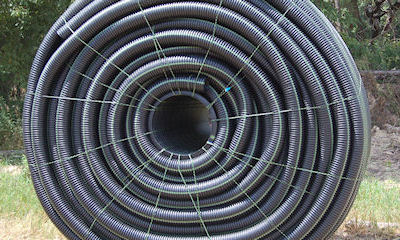
It's obvious that installing new tile on rented land is a long-term investment. If the tenant is doing it he or she needs a contract that would compensate them over time for the costs, or guarantee they have time to recoup their costs.
Related: What should you tell your landowner about your farm and this season?
But what about rented land where there is already tile and open ditches, but they need repair? If you cash rent the land are you automatically agreeing to take care of fixing them if there are issues at your expense?

Who pays repairs? If you are the landowner with a new tenant, maybe you expect this one to repair tile problems just because your previous tenant did. Purdue specialists say it's better to confirm that in writing rather than making assumptions.
These are the kinds of questions Paul Marcellino and the Purdue Land Lease team get when they hold meetings about land leases. The team consists of Extension educators scattered across Indiana, backed up by specialists on staff at Purdue University. Marcellino himself is the Extension educator in Howard County.
Repair of existing ditches or tile can be an issue, and it's complicated by the fact that owners and tenants have so many variations of agreements when it comes to drainage in their contracts, he says.
The result is that there are few guidelines when it comes to ditch repair on rented land.
Common practice has been that if the repair is minor, the farmer will repair it, and even do the work, at their cost. That's especially true if the farmer has his or her own backhoe, or access to one at no or at a reasonable cost. One farmer told us he picked up a low-cost, older backhoe just for this purpose, and has already paid it off several times over in savings from being able to do his own work on blow-outs or other ditch issues.
Related: Tax implications to a landowner switching to flexible cash lease from fixed cash rent
If the repairs are major, it may be reasonable to expect the landowner to bare at least part of the responsibility. The bottom line is that this issue needs to be addressed in writing in a rental contract, even in a cash-rent contract, Marcellino says. Specify up front who is responsible for what in these types of situations to avoid future misunderstandings.
About the Author(s)
You May Also Like




